
Spoilers for all episodes of The Decameron ahead. Lou Gala makes her U.S. debut in the first episode of Netflix’s newest miniseries The Decameron as a character who shifts between two extremes: At the start of the premiere, she’s bent over fervently praying, and by the end she’s pleasuring herself while spying on a shirtless doctor. Based on Giovanni Boccaccio's 1620 story collection, the new dramedy from creator Kathleen Jordan is about a dozen aristocrats and servants quarantined together in a Florentine villa as the 14th-century Black Plague ravages the outside world. Gala’s Neifile, one of the many characters who are not all they seem on the surface, is a pious wife whose faith is shaken by the apparent end of the world, but at the same time it gets harder and harder for her to ignore her physical urges.
The French actress, who has appeared in the French series Secrets d’histoire and Les Chamois as well as a small role in the Max drama Julia, is one of the delightful surprises of the crowded series, holding her own among TV veterans including Zosia Mamet, Tony Hale, and Derry Girls alum Saoirse-Monica Jackson. Speaking with Marie Claire ahead of The Decameron’s late July premiere, Gala recalled “craving” such a complex, demanding role. “It's hard to imagine this kind of project,” she says. “It doesn't happen often, even to read a script that's so funny, but at the same time critical...Everything was incredibly powerful.”
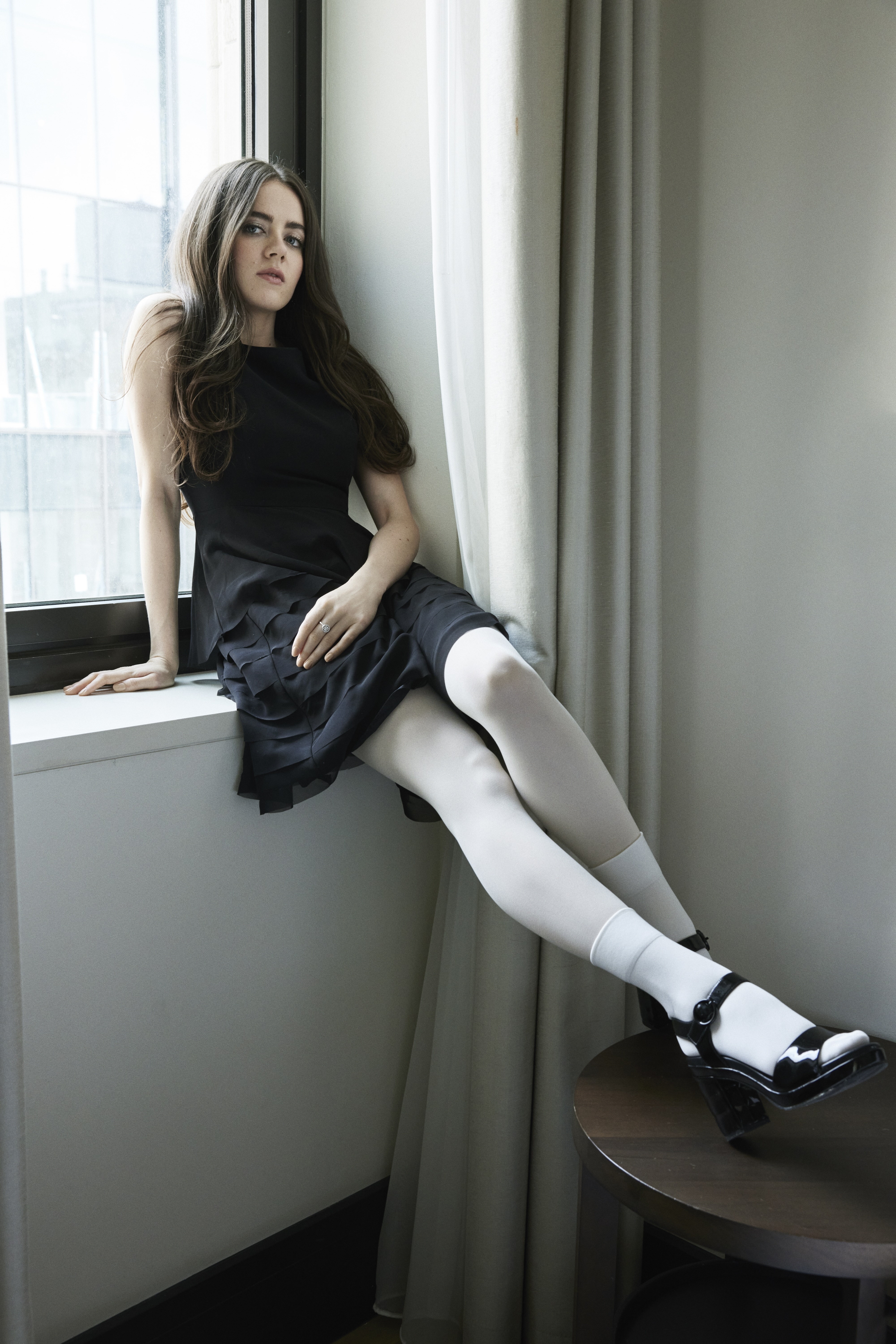
Gala dove into crafting this character while living in Rome for the first time. To portray Neifile’s fervent piety, the actress made trips to a nearby source of inspiration: St. Peter’s Square at the Vatican. “It was incredible to see the devotion,” she recalls. “People were crying, and people from all around the world were with their flags. It was an incredible moment of communion, and I could infuse that spirit into Neifile.”
Here, Gala chats about her emotional first acting lessons, crafting Neifile’s moment of “emancipation,” and finding similarities between The Decameron and the COVID-19 pandemic.
Marie Claire: When did you fall in love with acting and decide to pursue it?
Lou Gala: When I was 15-ish, I had acting lessons in my school, and I enjoyed that so much that I wanted to do more. So I went to another school in Paris, and at the same time I started auditioning and booking some small parts in French films, TV, short movies, and a lot of projects. The first time that I went into one of those acting classes, I just felt so joyful and inspired. I remember that time was incredibly emotional. I took a week trying the class and learning this special training. I cried, and I knew that I definitely wanted to do that.
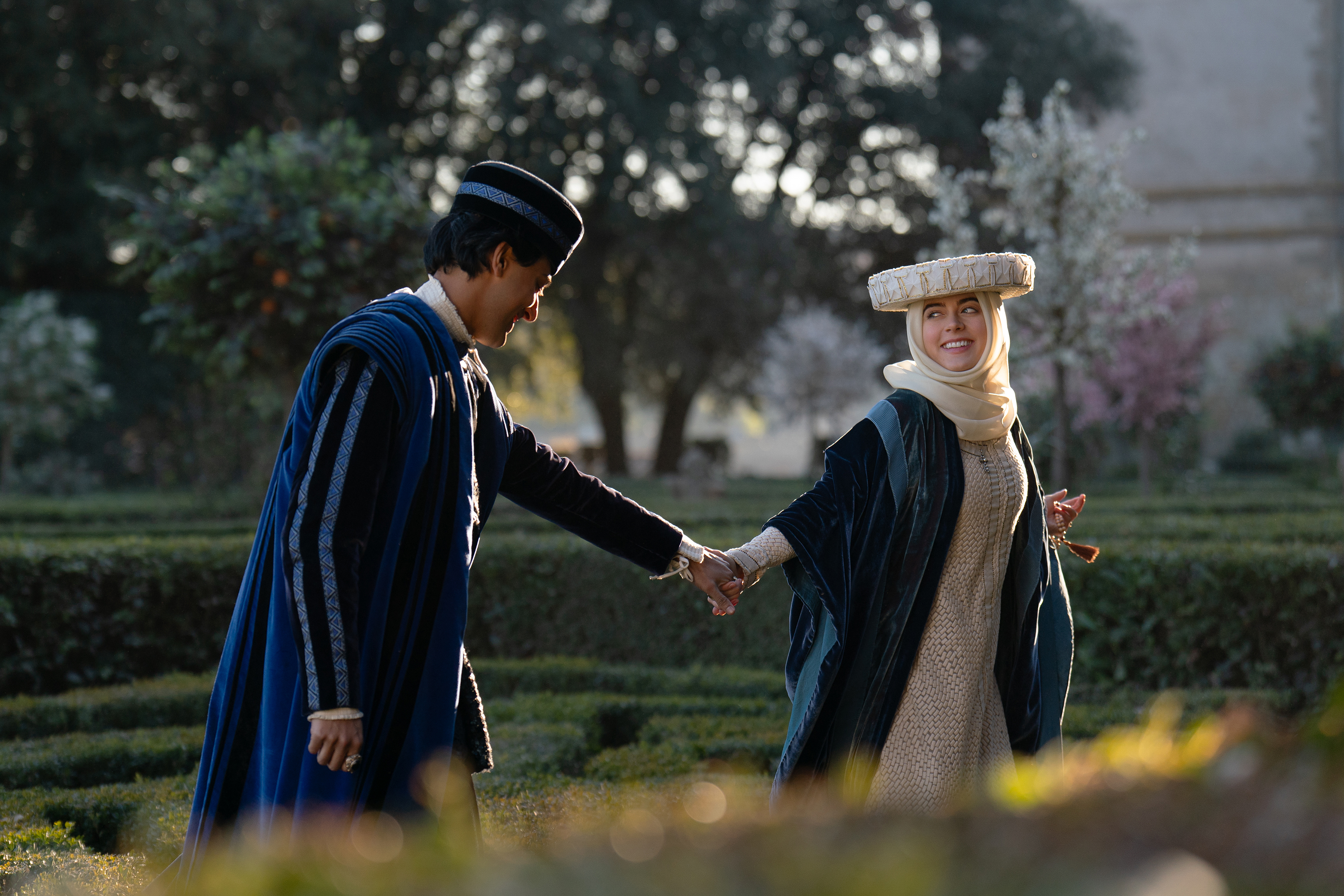
MC: The show’s official description calls Neifile a “woman of paradoxes.” When you first read the script, what was your reaction to her as a character, being this pious woman who also has sexual urges?
LG: I think that was beautiful because the two things come together. She's just a human who's going to learn to be a complete woman. At the beginning of the show, she's completely in a state of shock because the world is falling apart, and also she's really restrained in her body. She is under a lot of stress and she's living through her values and her views on faith. I love how she gets to something else. By the end, she's still managed to reconcile living her life as a woman and still being in her faith without losing hope. We really see the woman starting to extend and become, and choosing her path in true independence and liberty.

MC: Was there any particular scene that was extremely funny to play? I'm thinking of the sewing machine scene from the premiere.
LG: All those steamy scenes were extremely fun to play. It was more like, Am I really doing that in front of so many people? I think everyone was in good spirits during those scenes. I felt they gave all us actors a lot of freedom. Everyone was joyful and it was easy. But I had even more fun in the fighting scenes with my husband—when we are at the dinner table when Ruggiero is there. Everything kind of also falls apart, and Panfilo's falling apart in a different way than the plague because Ruggiero's bringing so much disruption. This is the moment where this distance that's happening with Panfilo. I had fun also fighting with him because it's a little bit unfair. He always has been on my side from the beginning, and now we have this contradiction between us.
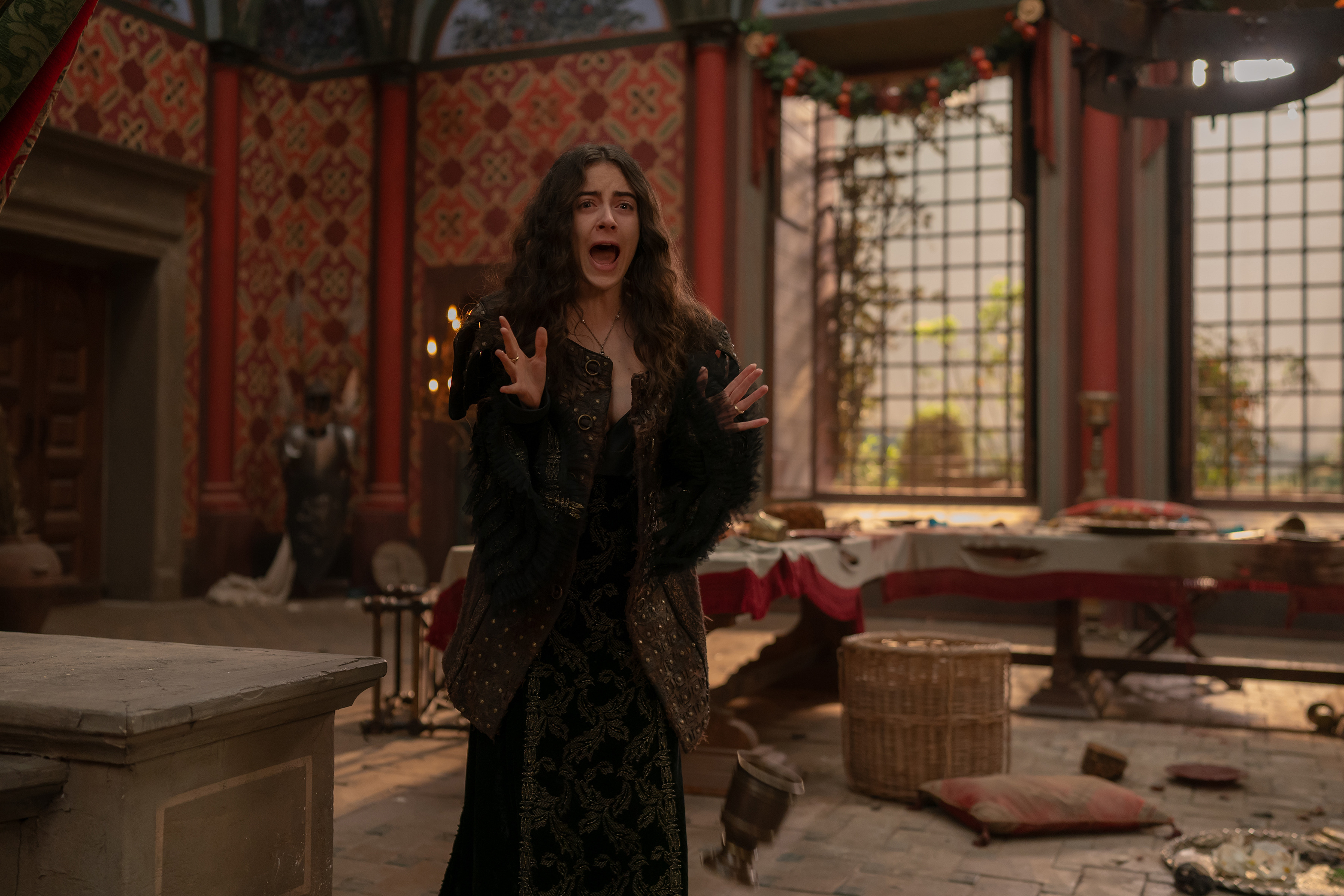
MC: You were filming in Rome for nearly half a year. What was it like to be there?
LG: It was an absolute dream. I was craving to be on a TV series like The Decameron. It wasn't something you can even dream to do, because it's hard to imagine this kind of project. It doesn't happen often, even to read a script that's so funny, but at the same time critical, and it talks about how social norms are changing. The fact that it was also inspired by Covid. Everything was incredibly powerful. And then it was my first time in Rome—living there and learning to speak a bit of Italian. Prior to the shooting, I spent two weeks there because we were also doing the fittings for hair and costumes and doing a bit of stunt training.
Also it was so special for my character because this is the place where the Pope lives. I got to go to the Vatican a couple of times—every Sunday at noon, he opens his windows and he talks to the crowd. He gives speeches about faith, angels, and a bit of international politics. The couple of times I went there, it was incredible to see the devotion. People were crying, and people from all around the world were with their flags. It was an incredible moment of communion, and I could infuse that spirit into Neifile.
By the end, she's still managed to reconcile living her life as a woman and still being in her faith without losing hope.
MC: What was it like performing in a period piece and doing physical comedy and fight scenes in those costumes?
LG: We have some incredible costumes because we have incredible costume designers. We have Gabriella Pescucci and Uliva Pizzetti. Gabrielle won an Oscar for costumes in 1994 [for The Age of Innocence]. I felt I've been incredibly spoiled. I felt like a princess because of how spectacular and spoiled we are with costumes. I really love some of the hats, like the pink one. They were saying the costumes were very virginal, which I find very funny, and I think it goes well with my character too.
MC: Neifile’s relationship with her husband Panfilo is such a fun part of the show. What was it like building that relationship while you and Karan Gill were on set?
LG: Just reading the script, it was so important that Panfilo and Neifile are a strong couple. It was incredibly moving for me because they have a very pure love. They're indestructible. They just value everyone's happiness at the deepest level, so that was incredibly emotional. On set it was easy, because Karan is such a strong actor. He's so powerful and intense, and we naturally had this perfect balance with me being more excited and, let's say, vulnerable. He brought the same energy as his character. He knows how to be a rock and to be a foundation no matter what.
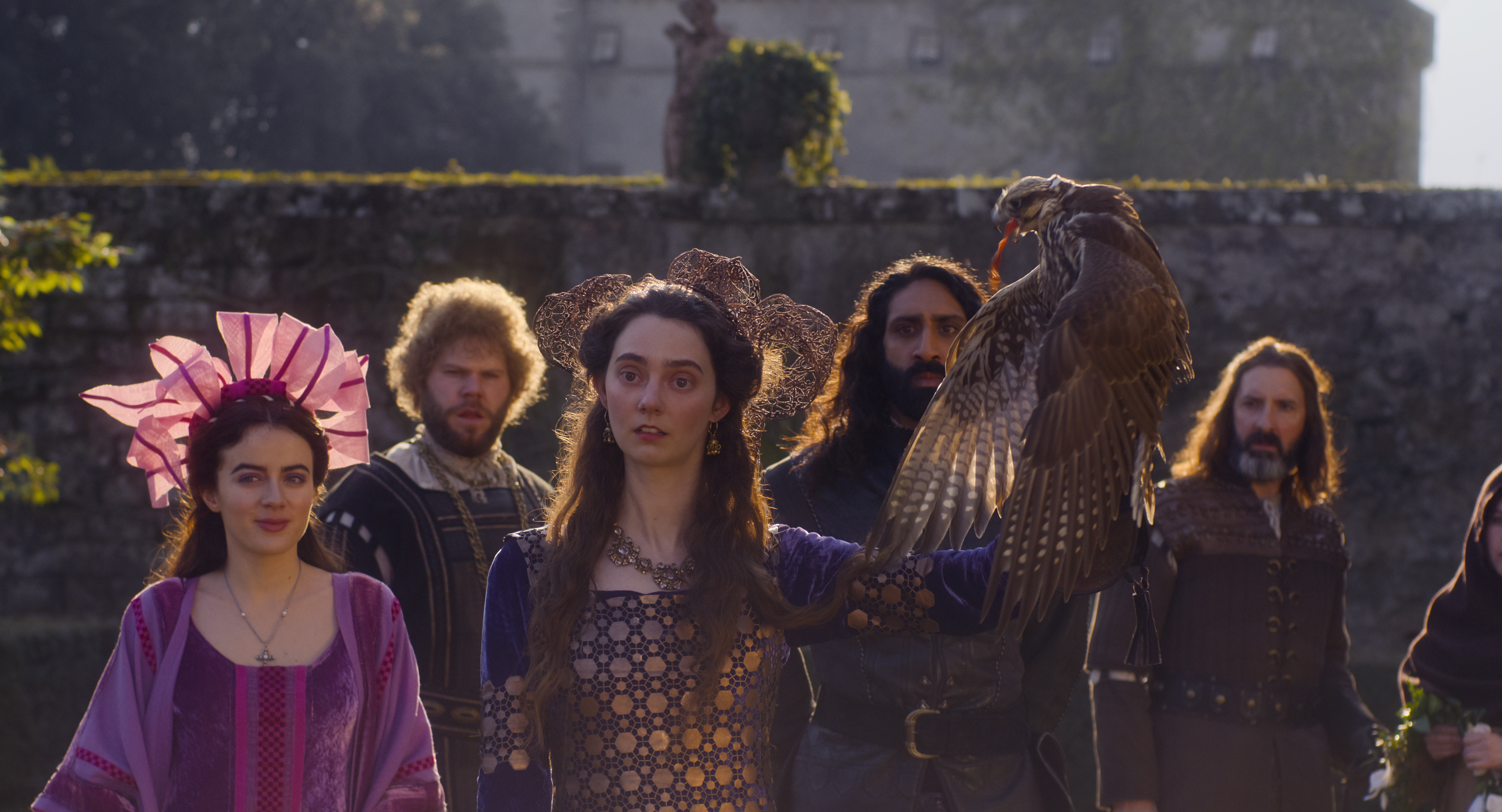
MC: Neifile's decision to stay with Ruggiero is a pivotal moment for her. What was it like to play that night and the days after, where unfortunately she's approaching her death, but she's also fully self-actualized?
LG: Neifile does take this huge step in going with Ruggiero, and it's not an easy one. It's something that she feels she has to do. It takes a betrayal, but also there is this urge of following her own needs, her own desires. It was so beautiful to see a woman choosing herself and deciding to live by her own rules in full independence. This is the beginning of her full emancipation, of letting go of her constant anxiety and her fears in life. She's learning about herself, but at the same time, she's letting go of all of her fears she had because of everything that's unfolding in the outside world and this fear of death.
When she's finally ill, there is this very strong sense of peace that she is experiencing. I felt this incredible liberation at this point because, as an actor, I could feel the weight of all of her pain and stress at the beginning. When she knows that she's sick, she remains in that state of peace because she's ready. There's nothing else that can hurt her anymore. The only thing she doesn't want is Panfilo to be suffering in any way. She wants him to, maybe, have the villa but more to be safe. That's the only fear that could still remain when she's in the bed and he is by her side.
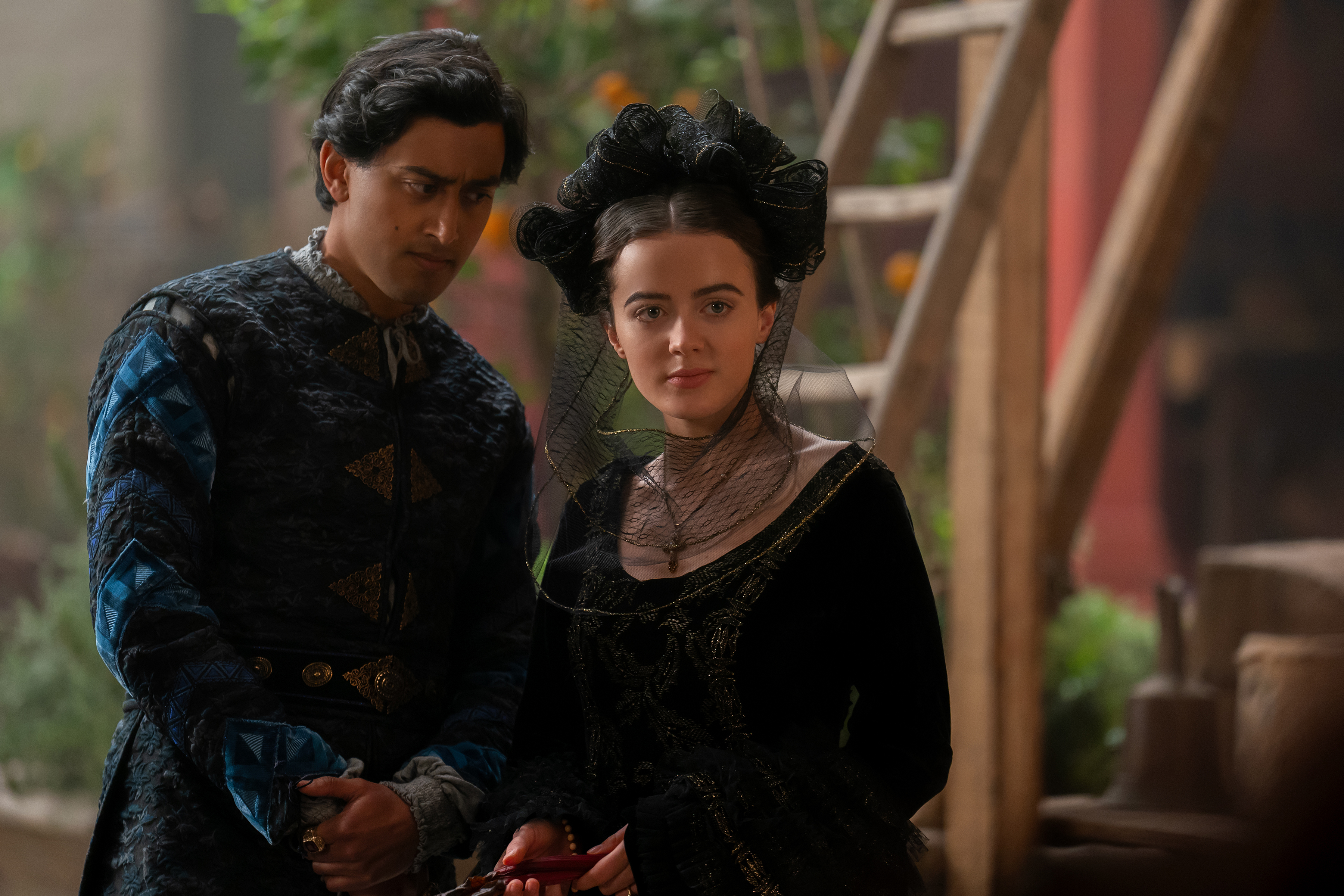
The two deathbed scenes were incredibly emotional to shoot. It was a way to say goodbye to so many things. I remember very vividly this day on set, with Karan, in this room with the crew and with Anya [Adams], who was directing it. It was beautiful because it was a life without frustration, because everything has been accomplished in a way. So Neifile was able to live her life fully.
MC: What do you hope that viewers take from the show?
LG: I think there's so many levels to it. It's exploring a madness that can happen in lockdown, but also, this show is talking about everyone—what we were doing during Covid, during the pandemic. It really takes us back there. It's an exploration of selfishness and our values, and the self-reflection we were able to do during this time period. I think there's a reminder that the people who were lucky during this time got to discover things about ourselves. We got to maybe realize what was important and what definitely was useless in our lives. The Decameron is a dark comedy, so obviously there's so many fun moments, but there's always this undertone of darkness. It's there to remind us to put our love in the right spots, and to learn to appreciate what's there without being too serious about your possessions and your realities that can just switch in a second. There is this subtle critic of everybody. All of our characters have this grotesque aspect, and there is this grotesque aspect in everyone. There is definitely something about that; everyone is taking themselves too seriously. I hope people are going to laugh a lot at our expense.
This interview has been edited and condensed for clarity.







